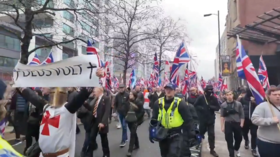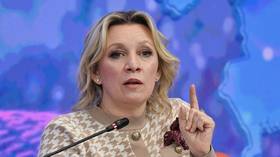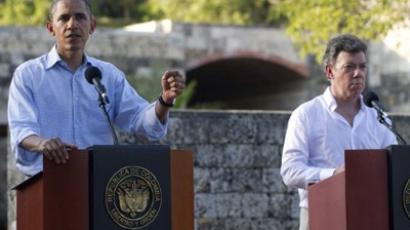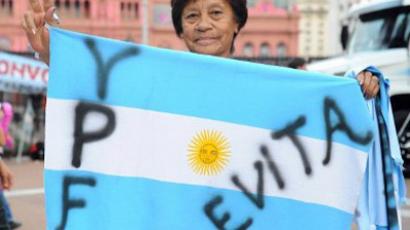First mass strike in decade paralyzes Argentina, challenges Kirchner govt
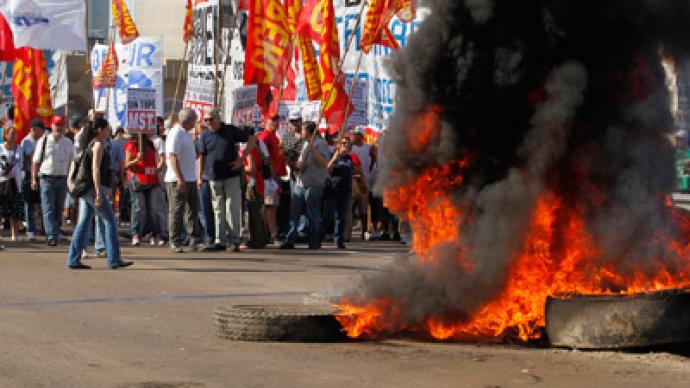
A strike called by Argentina’s two largest unions has crippled the country’s capital and several other major cities. The government’s plummeting approval rates have sparked widespread mass protests against President Cristina Kirchner.
Hundreds of picketers blocked roads into Buenos Aires, where demonstrators lit fires in the street and called for a higher minimum wage and lower income taxes. The capital city was transformed into a veritable ghost town, with subway and rail services also suspended. Chile’s main airline LAN cancelled flights within Argentina, as well as a number of routes from other Latin American cities including Sao Paulo, Lima and Santiago.
Nearly 90 percent of businesses and organization in Buenos Aires reportedly participated in the strike; hospitals even turned away patients in solidarity with the mass protest. Walkouts were also observed in the provinces of Cordoba and Santa Fe.Representatives from Argentina’s two largest unions, CGT and CTA, praised the nationwide strike as a success, and said that turnout had topped 80 percent.
“There are hundreds of thousands of workers across the country sending a message to a government that closes the eyes to all of us who disagree with them,” CTA union leader Pablo Micheli said.“Today is a day of celebration. We feel satisfied. There turnout was greater that we could have imagined,” Hugo Moyano, one of the organizers of the unions’ press conference said. Moyano promised the unions would take further measures if their demands were not met by Kirchner’s government.
President Kirchner sought to downplay the strikes: “Today there wasn’t a strike, not even a little march,” she said. “Let’s call it a bit of a squeeze or a threat.”Members of her government claimed that the movement was initiated by politically ambitious union leaders to blackmail the country into supporting them. Despite the official criticism, authorities did not move to disperse some 300 protests across the country.
The mass strike is the second such demonstration in two weeks against the rule of President Kirchner. Thousands flooded the streets of Buenos Aires on November 8 to protest increasing levels of crime and corruption in Argentina, and their dissatisfaction with Kirchner’s government.The protests are the result of an Argentinean middle class increasingly disgruntled with the rule of Kirchner, who was reelected last year with 54 percent of the vote. Her popularity has recently plummeted, going from 60 percent on the week of her reelection to 34 today, according to the Giacobbe and Associates polling institute.





